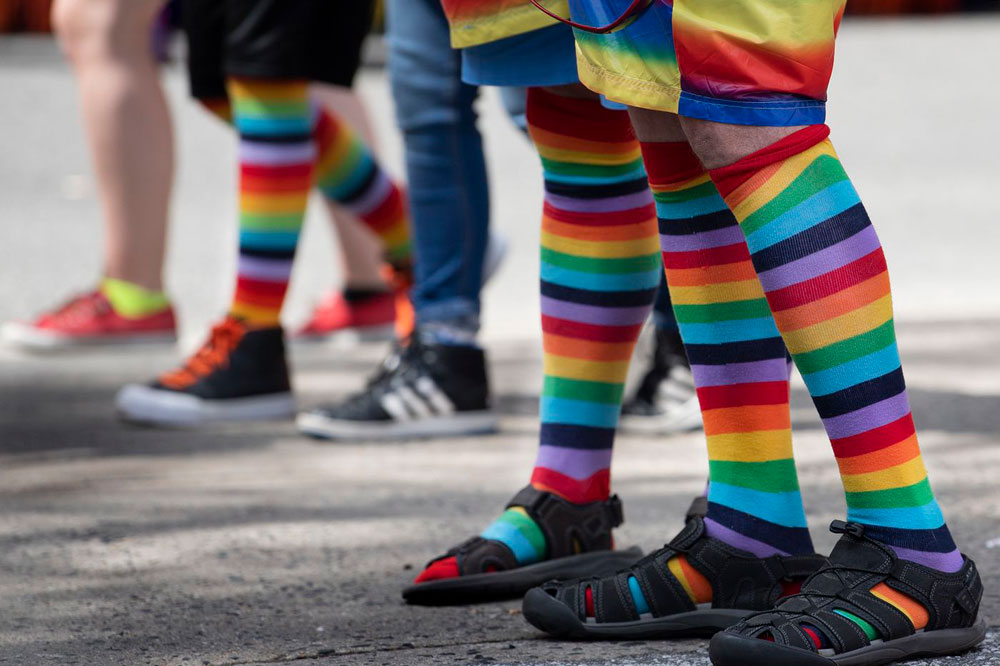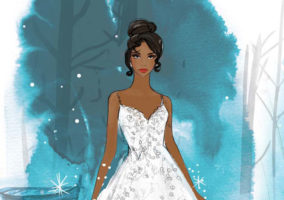
Kittens, here are all the posts, articles and essays that caught our eyes and tickled our respective fancies. (Also, one we wrote.) Get zeitgeisty!
This month marks the 50th anniversary of the Stonewall riots — the match that lit the fuse on the modern LGBTQ rights movement and the reason why we have Pride parades this time of year. With every Pride month, there is much to celebrate and much work yet to be done for the entire LGBTQ community to achieve full equality. This year, we’re doing the same thing a lot of our queer contemporaries seem to be doing: questioning the corporate branding of LGBTQ Pride.
Tom and Lorenzo, famed Philly bloggers, rank the best and worst of Pride products. by Tom Fitzgerald and Lorenzo Marquez for the Philadelphia Inquirer
Many of the people who worked with him at Chanel, Fendi, and Karl Lagerfeld spoke on video; there were performances on stage and readings from literature by Tilda Swinton, Cara Delevingne, Helen Mirren, and more. Pharrell Williams sang and the pianist Lang Lang played. Tango dancers tangoed—we learned it was his little-known passion.
Karl For Ever: In Paris, the Fashion Industry Pays Tribute to Karl Lagerfeld by Sarah Mower at Vogue
A gay romp through the world of name-brand Pride merchandise.
How Much for that Queerness in the Window? by R. Eric Thomas at ELLE
The R&B queen returns as a MAC Cosmetics spokeswoman and will be a judge at the Love Ball in New York.
Mary J. Blige Still Slays by Guy Trebay at The New York Times
Kelly’s 1954 letters discuss Hitchcock, her Oscar-winning film ‘The Country Girl’ and Cassini’s jealousy of Bing Crosby: “I have very few friends here — please don’t ask me to give up their friendships.”
Letters From Grace Kelly and Jacqueline Kennedy Highlight Oleg Cassini Auction by Laurie Brookins at The Hollywood Reporter
In her long and storied life, Vanderbilt was recognized for her impact on fashion and style, as well as her penchant for designing a beautifully whimsical home for herself and her family. She had a signature quote when it came to matters of the home: “Decorating is autobiography.”
Inside Gloria Vanderbilt’s Family Homes, Filled With Prints, Flowers, and Plenty of Love by Brooke Bobb at Vogue
The notion that influencers, a category of microcelebrity already subject to sizable cultural disdain, are monetizing their engagement so shamelessly is itself distasteful to many. Grossman and Fuchs’s elaborate proposal, it could be argued, is just another example of the insidiousness of influencer culture, wherein life’s most momentous events are only important to the extent that they can be exploited for cash and clout.
This viral “surprise” proposal shows the less glamorous side of influencing by Rebecca Jennings at Vox
This foundational aspect of the character metastasizes through our knowledge of Wayne’s own prejudices and antipathies. Ford used Wayne to introduce what was—in 1956, at the time of the film’s release—a relatively new tract for a Western to take: the idea that the poetry of the West, both in word and deed, had always been a poetics of hatred. Jimmy Stewart, great actor though he was, would have been the wrong man around whom to build such an unsettling film. The Searchers needs John Wayne; it needs its “poet of hatred.”
On John Wayne, Cancel Culture, and the Art of Problematic Artists by Tyler Malone at LitHub
“Writing off bigotry as negativity—the word Swift used to describe what her song is attacking—probably isn’t helpful either. Homophobia is a real ideology with a real history. Telling homophobes they’re boring downers probably won’t sway them, and it’s hard to imagine that such a message will comfort many of the people they target. Right here is the aforementioned meaning-drift, the dilution. “You Need to Calm Down” has, between its muddled metaphors, only one clear through line: Swift’s struggles with criticism in the public eye are like those of gay people facing actual hate for being who they are. Huge social conflicts are boiled into a bland, unworkable battle between smiley rainbow people and “haters.” And if you’re annoyed at that, you’ll be told you need to calm down.”
The Queasy Double Message of Taylor Swift’s ‘You Need to Calm Down’ by Spencer Kornhaber at The Atlantic
Gerwig shot on location in the book’s Massachusetts setting, where Alcott and her three sisters grew up. The director researched locations that the family could have inhabited, and in some cases, ones they really did—like the schoolhouse where Alcott’s firebrand father, Bronson, taught. “It gives gravity to what you’re doing,” Ronan says. “The physical place really reminds you of the story you’re trying to tell.” Gerwig also relied on paintings from the era, to give the film a vividness that the black-and-white and sepia portraits of the era couldn’t accomplish. An 1870 painting by Winslow Homer called High Tide created the texture for the beach scene; costume designer Jacqueline Durran modeled Jo’s look after a figure in the work.
Exclusive First Look: Greta Gerwig and Saoirse Ronan’s Little Women by Sonia Saraiya at Vanity Fair
[Photo Credit: Jose F. Moreno/Inquirer]
Pop Style Opinionfest: Pride & Penises Next Post:
BET Awards 2019: Lizzo in House of Holland
Please review our Community Guidelines before posting a comment. Thank you!



